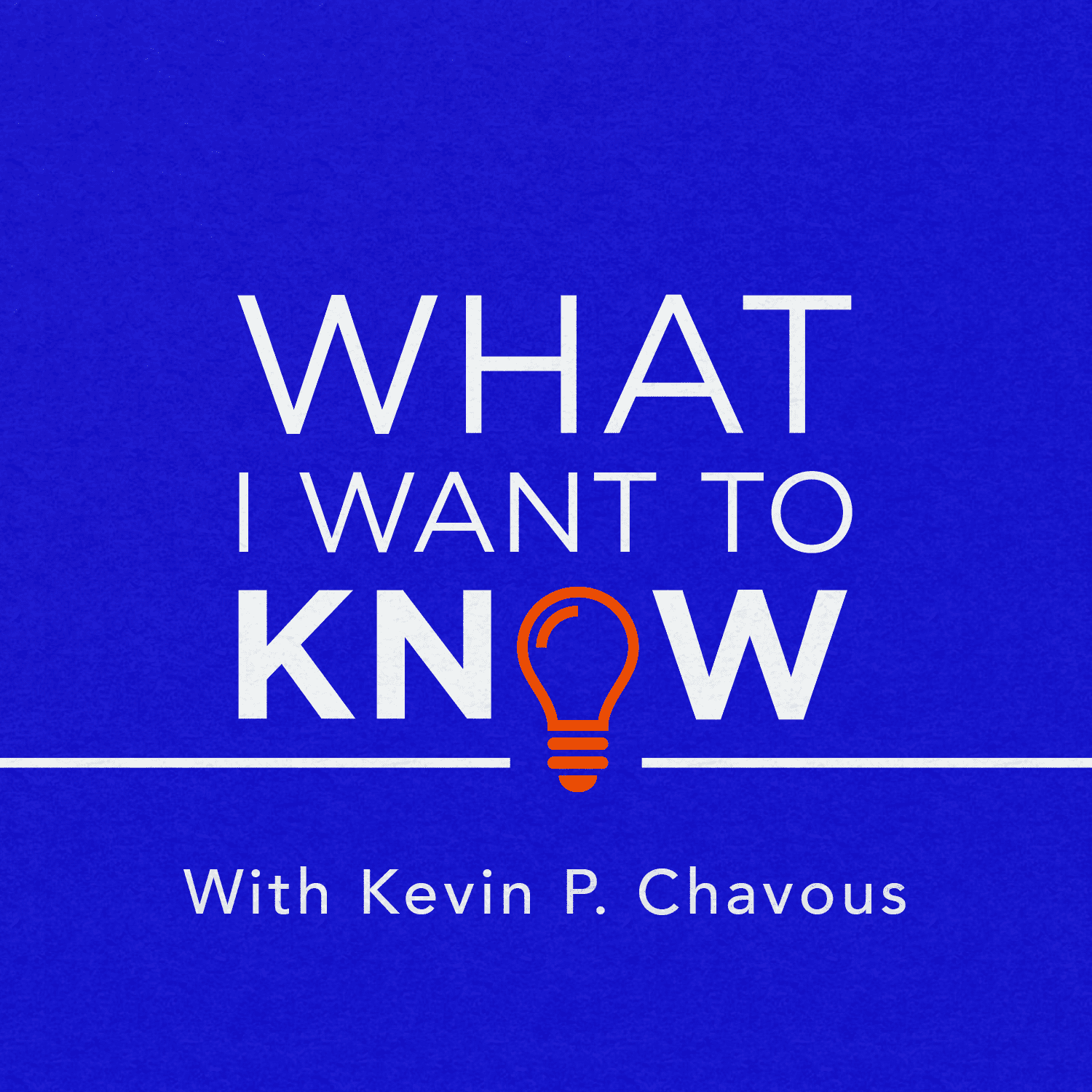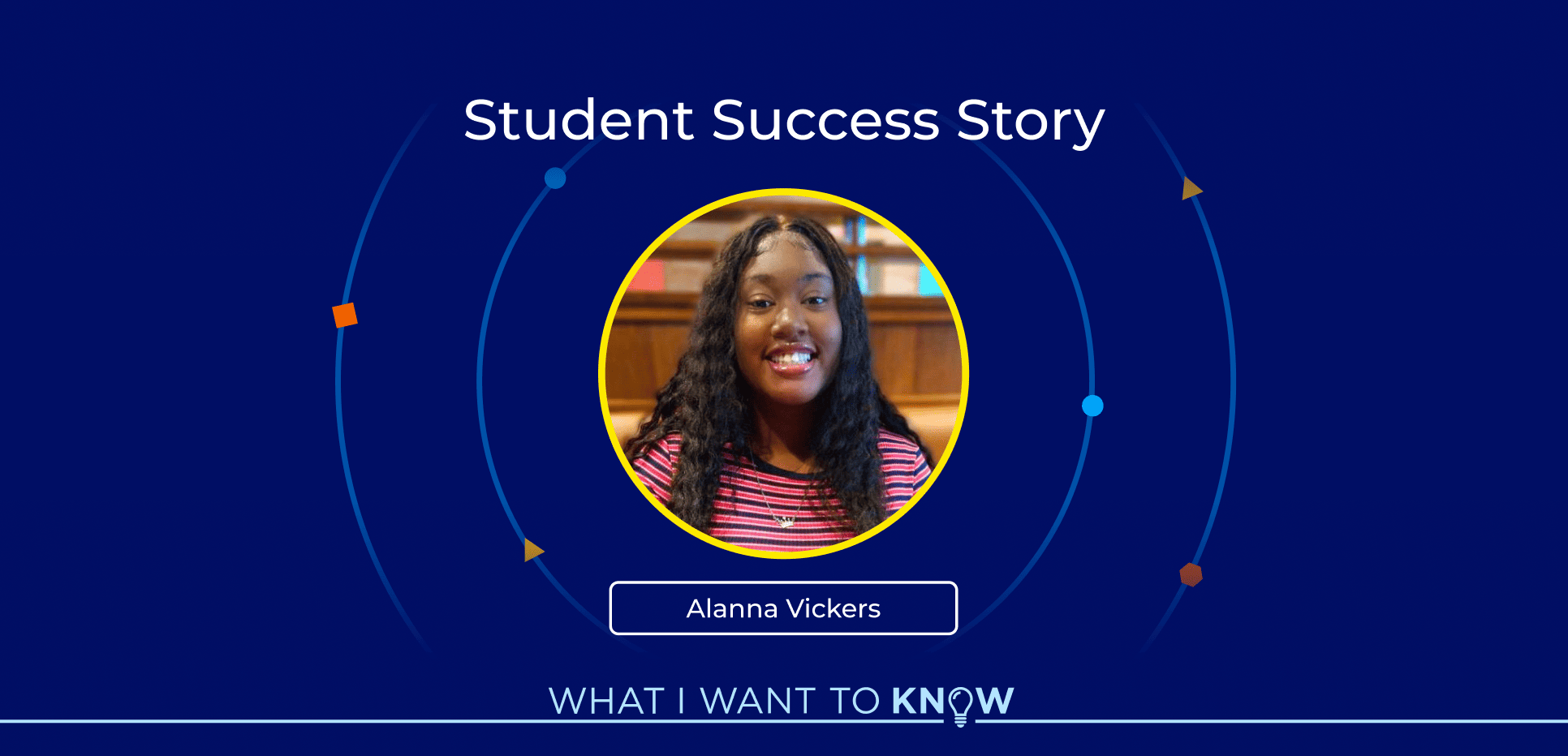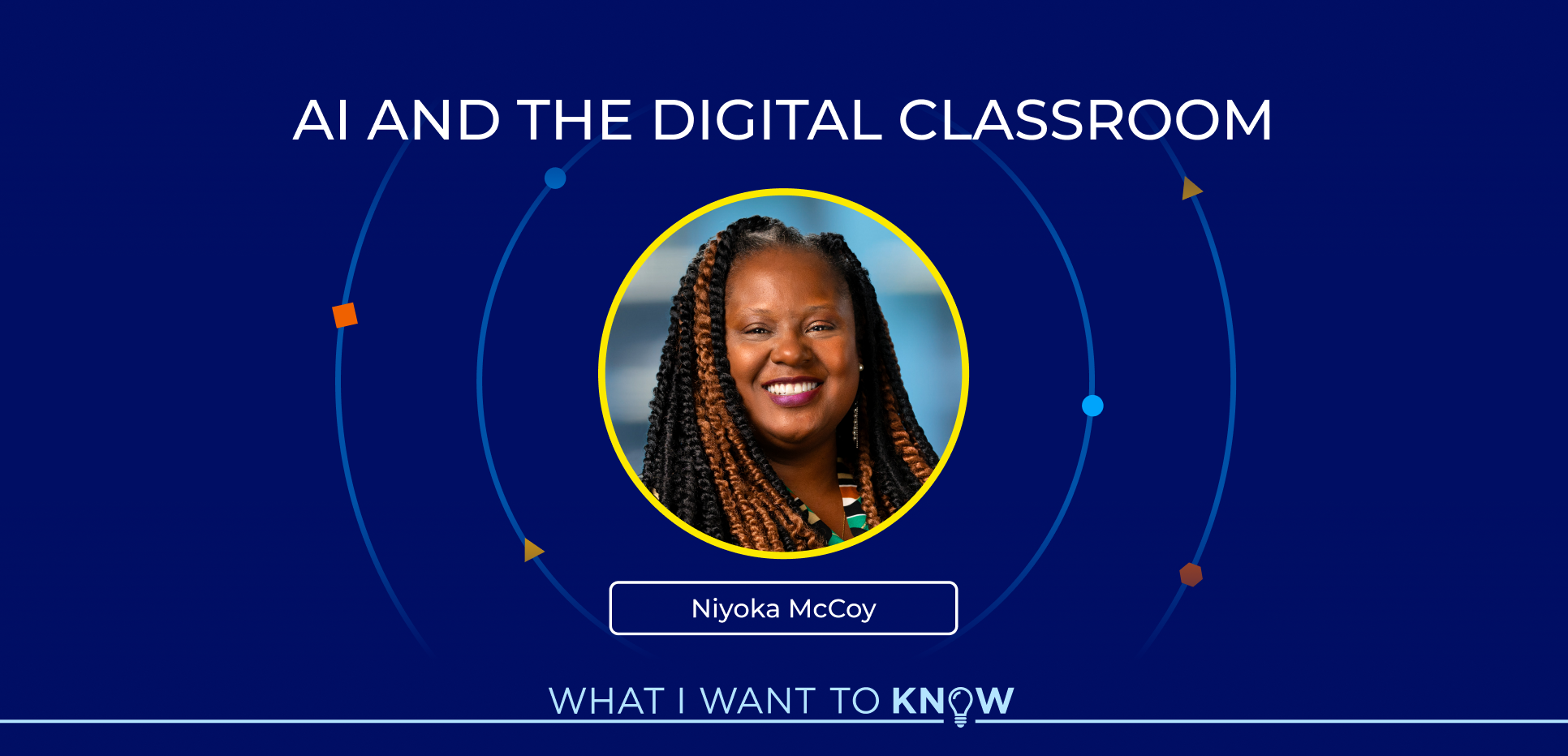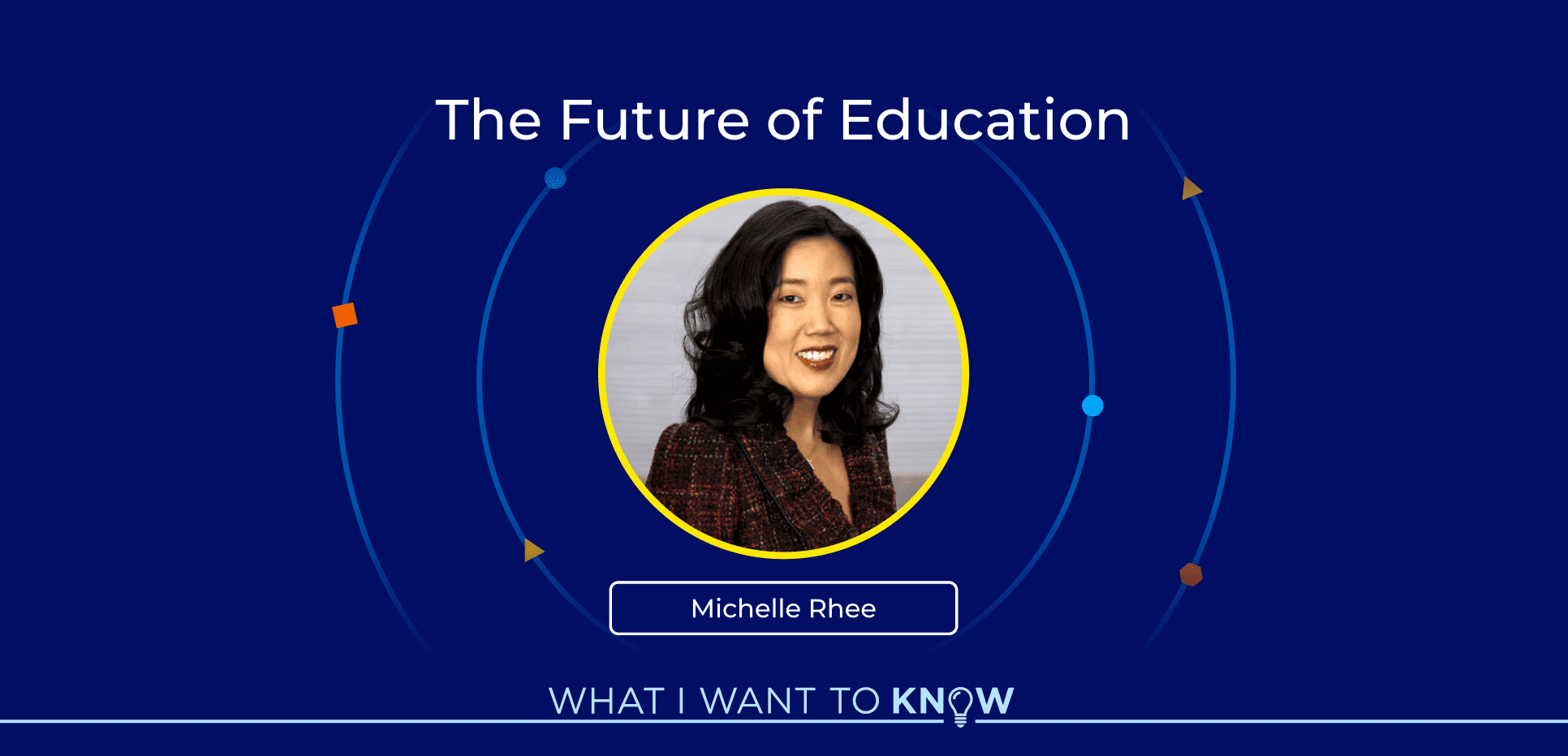Now more than ever, it is important for our nation’s students to be socially conscious and civic minded. But how do we teach civics in an era of partisan politics? What can we do to infuse more fact and less fiction into those discussions? And what role does education play in creating responsible citizens who can move the country forward?
In this episode, Kevin speaks with Maryland Democratic Candidate for Governor Wes Moore to discuss how we should engage today’s youth.
Listen to the Full Audio
Listen on: Apple Podcast, Spotify
Transcript
Kevin: Now more than ever, it is important for our nation’s students to be socially conscious and civic-minded. But how do we teach civics in an air of partisan politics? What can we do to infuse more fact and less fiction into those discussions? And just what role does education play in creating a responsible citizenry that can move this country in the right direction? This is “What I Want to Know.”
Kevin: And today I’m joined by Maryland Democratic candidate for governor, Wes Moore, to find out. Wes Moore is a veteran, author, and the former CEO of one of the nation’s largest nonprofit, anti-poverty organizations. Throughout his life, he’s been driven by the belief that no matter where you start, you deserve an equal opportunity to succeed. Those principles have put Wes at the forefront of our national conversations on poverty and the value of public service. He is with us today to discuss how we should engage today’s youth in each of those topics, and so much more. Wes, welcome to the show.
Wes: I’m so excited to have this conversation with you, and I’m thankful for your work.
Kevin: I wanna go back to the start because I’m always intrigued, Wes, about what drives people. And in knowing your bio and history, your father died when you were young. And it may sound sort of like a cliche, but that still had an impact on your drive even today.
Wes: I still does. And you know, there are two things that I feel that have saved me and really saved my life. One is I had a mom who just wouldn’t quit. And I’m eternally grateful for her. And the other thing is I had an education that helped me to understand that the world was bigger than what was just directly in front of me. And you’re absolutely right. The last memory I have of my father was when I was just months away from my fourth birthday. And he went to a hospital, and his clothes were disheveled, and his face was unshaven. And there were assumptions about whether or not he had insurance. And when my mom got to the hospital, they asked her questions like, “Is he prone to exaggeration?” And he was given instructions to leave the hospital with the…and was told, “But go home and get some rest,” and if he got worse, to come back. And he died in front of me five hours later. And my father went to the hospital looking for help. And then when my mother then instantaneously became a single mom who was now gonna raise three kids on her own, she was not prepared for that. That was not the life that she expected, that was not the life that she prayed for. And our family had real challenges.
Kevin: And rather than being grounded in a life full of revenge, and for many of us, many men of color in this country, that revenge stems from anger and frustration. You have always been upbeat. You’re smiling now. You’re always smiling. And I was introduced to your work with your landmark introduction to the world, “The Other Wes Moore.” Now, I will say that I have written six books, but I’m not a writer. You, my brother, are a writer. And when I read your stuff, then I don’t write for a while. And I can tell you that when I first read “The Other Wes Moore,” and I had been out of office for a couple of years, but it conjured up so much because the sheer irony and the sheer reality associated with the existence of two African-American men growing up in the same city, happen to share the same name, but wildly different experiences, really sort of buttress by fate more than anything. And now we’re 10, 12 years later from you writing that book, you still must be guided by that, as I could tell just by reading that book years ago.
Wes: Yeah. Well, I think so many of the lessons that I wanted to try to share with “The Other Wes Moore,” they’re still very relevant to this day. They’re still very relevant to our society. And I wanted to try to show within the book that despite certain similarities, like the fact that we have the same name, even though we might have started from different points where I was born in Takoma Park, Maryland, for example, and he was born in Baltimore. And despite the fact that all these journeys that we had, these traumas that each of us saw in our own individual lives, you see how there were so many points of our stories that you had measures of intersection and separation. Intersection and separation.
Kevin: And you drew that home almost episode by episode.
Wes: Yeah. Which was actually… And it’s funny because as I was first trying to pull the book together, I was trying to figure out how exactly to tell the story, this weaving narrative of these two boys. And I started realizing that we were having…that there were certain moments in our lives. Certain moments that ended up having significant impacts on our lives that were happening during the same year. So, around the same time that my father died in front of me was around the same time that Wes met his father for the first time. You know, around the same time that I left…at that point left Takoma Park and head up to the Bronx to go live with my grandparents because of the trauma that we had just gone through was around the same time that Wes was first getting involved in the juvenile justice system, around the same time. That I was sent to a military school, leaving New York and going to Pennsylvania, was around the same time that Wes had got himself caught up on a first serious charge over in Baltimore County. And so you see how these moments of intersection that they were all kind of cloaked in the same year. And so that’s how I decided to try to tell this story, and where you see how thin that line is between our life and someone else’s life until you get to the point of really the conclusion of the book.
Kevin: There’s this old-school expression, “But for the grace of God.” And I think it clearly applies to every human who’s ever born. But for African-American boys who grow up in many of our cities, I think that expression has even more stark meaning. And one of the things that help you, me, and others who are similarly situated not end up like the other Wes Moore was education. And you talked about it. And you talk about it as being the great equalizer. And you secluded the fact that you received the Rhodes Scholar. When did that light bulb go on in your head that, “You know what? School, education, learning, this stuff is important.”
Wes: I actually don’t think that for me there was a singular moment. I do remember the first time when I started to fall in love with reading. And that was something that happened because my mom got me…my mom knew I loved basketball and I hated reading. And I was below grade level on reading, and she got me this book called “Fab Five,” which was about the University of Michigan basketball team. And she did it because she’s like, “He loves basketball, so maybe he’ll enjoy this.” And she was like, “I’m sure he’ll get to it at some point.” And I think it was a day or two and I read the whole book. And she was like, “Really?” And then she started questioning. She’s like, “Did you really read it?” And she started asking questions, and I was answering all these questions. And she’s like, “He really read this book.” And so then she starts getting me more sportsbooks, because she’s like, “Maybe that’s it. Maybe I just need to get him to read.” And she was right because I started falling in love with the feeling of pages between my fingertips.
Kevin: It is interesting, this notion of reading. Today in education, there are some takeaways that we can learn from what you just said. So many young people, they can’t relate to the education experience they get in the classroom. For you, your mother gave you that book that stoke the fire. And this idea, and I’ve talked about on several other of my programs, this idea of a one-size-fits-all, teachers stand and lecture, kids have to sit quiet, take notes, and then spit it back out on a test and then forget it. That’s not learning. Today learning with technology, and the need to have and develop critical thinkers and problem solvers, it has to be more interactive, more engaging. But our school districts, and look, I think many of them are doing a great job, sometimes the system is slow to change to today’s kids’ needs. How can we make that change happen?
Wes: We have to make sure within our education system that we are coming up with the right kind of frameworks where we are making sure we’re adding to the joy of learning and the joy of teaching simultaneously. And to do that, it means we have to make sure that we have an education system that really does correlate to what it is that we’re hoping to accomplish. I want our students to not just learn how to be employees, I want them how to learn how to be employers. I want our students to know that this is about a lifelong journey, and a lifelong learning attitude, and aptitude, and appetite that we want them all to have. And so that means we wanna make sure that we’re having that measurement of flexibility for all of our students, and our educators, and our pair educators, so they know that what is it that we’re trying to prepare our students for. It means that we wanna make sure that we have students who are walking into and teachers who are teaching in buildings that properly correlate and properly translate into what we hope for. When we have teachers who are teaching in buildings that the students can’t drink from the water fountains because of lead, what is it exactly that we’re telling them? When we have students who are in buildings that they don’t have proper HVAC, or when it’s too hot or too cold, that you have children who are literally wearing coats during cold weather days, what is it exactly that we’re saying that we are preparing them for?
Kevin: Totally agree. And when we talk about the whole child, how do we weave in…from a systemic point of view, how do we weave in this notion of mental health support, and holistic education, and community engagement? We used to talk about having a nurse or a mental health counselor in every school, but then because of budgets and large school districts, that person, that individual may be in four, or five, six schools that they rotate around. But we’ve seen an uptick in terms of suicides and suicide attempts, and a lot of these other mental health challenges. How do we work the system so it doesn’t feel like it’s force, but a natural part of the learning experience?
Wes: I’m so glad you asked this question. And because we have to understand that mental health is not a lane, mental health is a lens. Mental health has to be understood in every single aspect of what we’re doing within our society. I look at, for example, in my hometown of Baltimore, there was a school shooting. A shooting that took place right outside of a school called Halliburton Elementary School. And I believe there were seven or eight shots that took place right outside this school. Few people were shot right outside of this school building. And you had elementary school children doing what they were taught to do, which is duck under their desks when you hear gunfire. And again, elementary school children who were taught to duck under their desks during gunfire.
And they did what they were told, and they did what they had to do. At the end of the day, the students went home and were literally walking past the police tape and blood that still had not been cleaned up on the street. And that was a Tuesday. And on Wednesday, they went to school like nothing happened, as if there was not a mass shooting that took place right outside of their school building. And so the city of Baltimore passes legislation called the Elijah Cummings Healing Cities Act, which basically said you need to add trauma-informed care in every aspect of our society. Because to act like we have children and families who are not dealing with this trauma, dealing with these issues every single day, and as if it’s not showing itself in every single day, in every single way is naive and it’s immoral.
Kevin: That leads me to this final area I want to explore with you, and that is this whole idea of civic engagement. I think part of the challenge we have is that so many young people who become aspiring leaders and should be aspiring voters, because of the toxic nature of today’s political world, they become disconnected with, and really question the belief around what the system and government can do. What do you think from a civic engagement point of view we can do to make young people more appreciative of, and to build more belief in our system of government and democracy?
Wes: Well, I think part of the frustration that many people feel about the system of government and government’s ability to solve their problems, it’s justified. Because I think for a lot of people, they look at the challenges that they have faced, and they look at the situations that they have dealt with, and they realize that these are not new. The issue of educational inequity, that’s not a new problem. The issue of environmental injustice, we’re just not learning about that. The issue of housing disparities, the issue of the wealth gap, not new. And so I think for a lot of people, the frustration that they feel that we are dealing with generational challenges is correct and it’s justified. I think there’s two things that we need to do and that we can do, to be able to come up with a way of addressing that frustration in a very real and a very concrete way.
First of all, we have to make sure that we are creating these systems that are actually working to the benefit of people. And that means making sure that people are actually part of the process. I’m a big believer in this idea, in fact, we used to have a sign that said, “The people who are closest to the challenge are the ones who are closest to the solutions.” They’re just hardly ever at the table. And so we need to make sure that we’re including the community, including the people in these debates, in these conversations, in these actions because if it just feels like everything is happening to them instead of with them, we understand why that measure of frustration continues to exist when the solutions are actually not things that are addressing the core distinct need and the challenge that I’m feeling within my society.
Kevin: Wes, this is what I really wanna know. How hopeful is Wes Moore that we can overcome the toxic politics of the day for the betterment of our children?
Wes: I am not just hopeful, I’m convinced. I’m convinced that we can do it. And do you know how? It’s because I know my own history. I know that when you think about some of the dynamics of my life, so many of the ACEs, the adverse childhood experiences that I had, so many of the things that my family endured that if you would have asked most people, and you just laid out, took our names and everything else away from it, and say, “These are the situations that over generations that this family is going to endure, how do you think that this child is going to do?” Most people would have said, “Not well.” But you know who didn’t say that? My grandparents, and my mom, and my uncles, and my aunts, and my mentors, and my coaches, and my ministers, and my friends, and my siblings. They didn’t say that. And so I know I stand here because there were people who were willing to help me to see something that I was not yet prepared to see, or that most objective observers thought I never would see.
The fact that I am having this conversation with you, the fact that I’m having this conversation as a gubernatorial candidate of the state of my birth, as the first black Rhodes Scholar in the history of Johns Hopkins University, as a combat veteran who led soldiers as a paratrooper with the 82nd Airborne Division in Afghanistan, as a small business owner who had a successful enterprise that eventually had a successful exit that focused on helping students make it to and through college, as the former CEO of one of the largest poverty-fighting organizations in this country. My story, if you just said it just on basis and eliminate everything else, doesn’t make sense, but it’s real. And the thing that gives me so much optimism and so much hope about the future, if we’re willing to hold on to that, if we’re willing to hold on to our realities, the fact that we have work to do, but we can do it together. That’s what gives me not just hope in the future but confidence that in this moment, we can get this done.
Kevin: Yeah. Well, Wes Moore, thank you for joining us on “What I Want to Know.” It’s been a pleasure.
Wes: The honor is all mine. Bless you. Thank you.
Kevin: Thanks for joining “What I Want to Know.” Be sure to follow and subscribe to the show on Apple Podcasts, Spotify, or your favorite podcast app. And don’t forget to write a review too. Explore other episodes and dive into our discussions on the future of education. I also encourage you to join the conversation and let me know what you want to know using #WIWTK on social media. That’s #WIWTK on social media. For more information on Stride, visit stridelearning.com. I’m your host, Kevin P. Chavous. Thank you for joining “What I Want to Know.”
Meet Wes
Wes Moore is a veteran, author, and the former CEO of one of the nation’s largest non-profit, anti-poverty organizations. He believes that no matter where you start, you deserve an equal opportunity to succeed. These principles have put Wes at the forefront of our national conversations on poverty and the value of public service. Now, he is running to become the Governor of Maryland.







